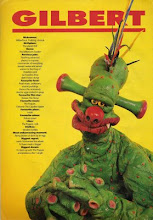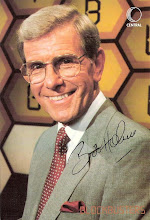 Alec Jeffreys at work in his Leicester University lab in 1985.
Alec Jeffreys at work in his Leicester University lab in 1985.Scientist Alec Jeffreys (now Sir Alec Jeffreys) was at work in his lab at Leicester University, England, in September 1984, when something astounding happened - he accidentally discovered what he called "DNA fingerprinting", and a whole new world was opened up.
This was a one-off, stand alone, out-of-the-blue discovery which was to have an amazing impact on the world. It was totally unexpected and unsought for.
In the late summer of 1984, Jeffreys was working on a project to study how inherited illnesses pass through families. The project failed.
But the result, although not what Jeffreys had envisaged or even imagined in his wildest dreams, was absolutely stunning.
Says Jeffreys: "I was on my own in the darkroom at 9.05 on September 10, 1984, when that pattern came up and I twigged what we had stumbled upon. Just that single bit of X-ray film threw open a door we didn't even know was there. It opened the whole science of forensic DNA.
"My first reaction was that the results were really yucky-looking and complicated. It took about thirty seconds for the penny to drop. I came rushing out of the darkroom. The first person I saw was Vicky Wilson, my technician. 'Hey, we are on to something exciting here,' I told her. We started coming on to all sorts of crazy ideas. I was running round the lab with a needle, pricking myself and spotting blood drops around, because at that point we didn't even know if DNA would survive in a forensic-type specimen.
"It was a 100 per cent accident. Science tends to be a slow, plodding discipline: two steps forward, one step back. To get a 'Eureka!' moment like that, when suddenly an entire new field opens up, is really rare. Most scientists will go their whole lives never experiencing it.
"In those early days you wouldn't have hung a dog on the quality of the DNA fingerprints we were able to produce, but within a few months we were getting much richer patterns. The most sensible thing I did was to call it 'DNA fingerprinting', if we'd given it a more technical or scientific name I'm sure it would have taken much longer for anyone to take any notice.
"The following year a lawyer read a piece on our research and contacted us because he thought we might be able to help with an immigration case. The son of a family living in London had gone back to Ghana and when he tried to return ten years later his British passport had expired and the authorities were convinced that another family member was trying to get in under his name.
"Through his DNA analysis we proved that he was telling the truth and to this day it is my proudest case."
Colin Pitchfork was arrested for the rape and murder of two teenage girls after the first "DNA manhunt" in 1987.
In the 21st Century, forensic DNA is an accepted and trusted tool - it has revolutionised crime scene investigations, led to the convictions of murderers and rapists, and transformed immigration disputes and paternity cases.
And just think - it all began, totally unexpectedly, in Sir Alec Jeffreys' Leicester lab on that fateful morning in 1984...
"Eureka" indeed!














